Type I interferon production enhances susceptibility to Listeria monocytogenes infection
- PMID: 15302901
- PMCID: PMC2211937
- DOI: 10.1084/jem.20040712
Type I interferon production enhances susceptibility to Listeria monocytogenes infection
Abstract
Numerous bacterial products such as lipopolysaccharide potently induce type I interferons (IFNs); however, the contribution of this innate response to host defense against bacterial infection remains unclear. Although mice deficient in either IFN regulatory factor (IRF)3 or the type I IFN receptor (IFNAR)1 are highly susceptible to viral infection, we show that these mice exhibit a profound resistance to infection caused by the Gram-positive intracellular bacterium Listeria monocytogenes compared with wild-type controls. Furthermore, this enhanced bacterial clearance is accompanied by a block in L. monocytogenes-induced splenic apoptosis in IRF3- and IFNAR1-deficient mice. Thus, our results highlight the disparate roles of type I IFNs during bacterial versus viral infections and stress the importance of proper IFN modulation in host defense.
Figures
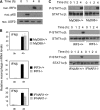
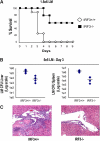
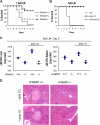
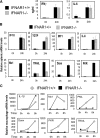
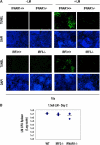
References
-
- Isaacs, A., and J. Lindenmann. 1957. Virus interference. I. The interferon. Proc. R. Soc. Lond. B. Biol. Sci. 147:258–267. - PubMed
-
- Taniguchi, T., and A. Takaoka. 2002. The interferon-alpha/beta system in antiviral responses: a multimodal machinery of gene regulation by the IRF family of transcription factors. Curr. Opin. Immunol. 14:111–116. - PubMed
-
- Le Bon, A., and D.F. Tough. 2002. Links between innate and adaptive immunity via type I interferon. Curr. Opin. Immunol. 14:432–436. - PubMed
-
- Biron, C.A. 2001. Interferons alpha and beta as immune regulators–a new look. Immunity. 14:661–664. - PubMed
-
- Taniguchi, T., K. Ogasawara, A. Takaoka, and N. Tanaka. 2001. IRF family of transcription factors as regulators of host defense. Annu. Rev. Immunol. 19:623–655. - PubMed
Publication types
MeSH terms
Substances
Grants and funding
LinkOut - more resources
Full Text Sources
Other Literature Sources
Medical
Molecular Biology Databases

